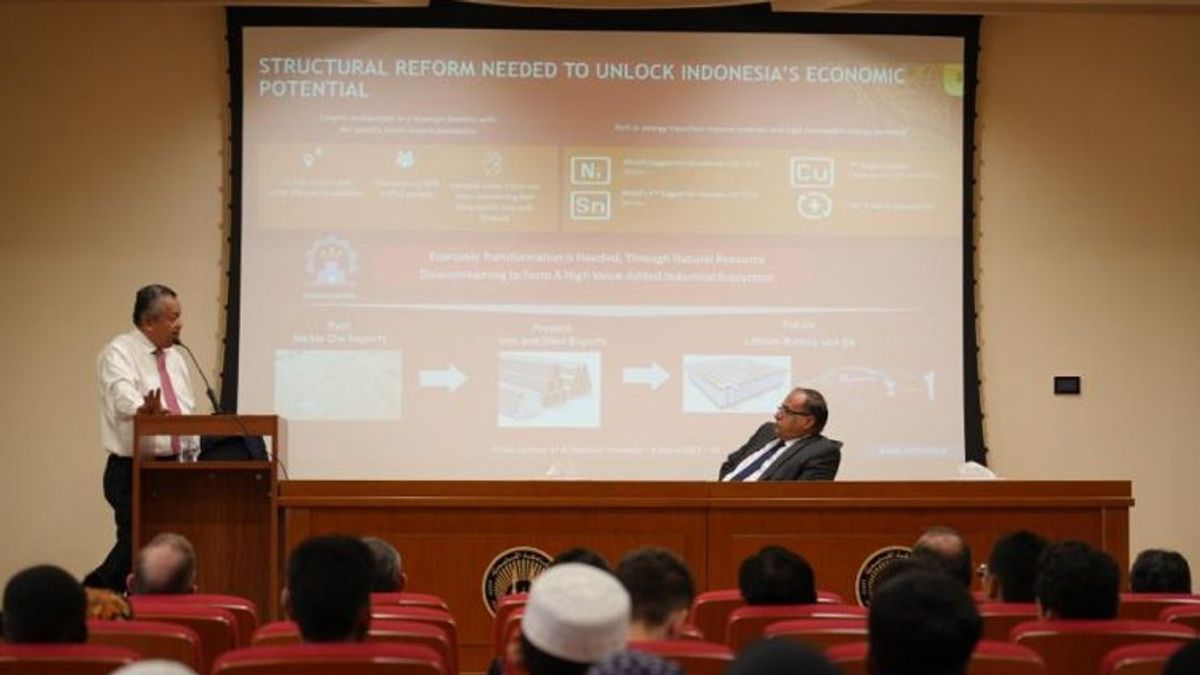JAKARTA - Bank Indonesia (BI) Governor Perry Warjiyo said innovation in monetary policy and the payment system would strengthen economic resilience.
"The implementation is carried out through monetary policy innovations targeted for stability. In line with that, payment system policy innovation for growth is realized through digitization in payment innovation and the development of the Digital Rupiah," Perry said in an official statement in Jakarta, quoted from Antara, Thursday, March 9.
This was conveyed by Perry at the lecture (open lecture) "Public Policy Innovation for Indonesia's Economic Resilience" at Al Qasimia University (AQU), Sharjah, United Arab Emirates (UAE) on Wednesday.
Payment system innovations include QRIS, fast payment, Local Currency Transaction, and Open API National Standards. According to Perry, global challenges such as the impact of the Ukraine-Russia war, energy and food vulnerabilities demand a more innovative response in the form of policies.
In a lecture attended by teachers and students at the Faculty of Economics and Management as well as the Faculty of Communication, Perry started teaching with an explanation of Indonesia's economic condition, namely the ongoing economic recovery with strong economic fundamentals and high digital acceleration.
"This Fundamental is reflected in the prospect of good economic growth, controlled inflation, managed trade balance deficits, and growing banking intermediation," he said.
Digital economic development in both online trading, electronic money, and digital banking that grew significantly, was also driven by QRIS, digital banking, SNAP and BI-FAST. In addition, the ASEAN Cross Border Connectivity and Local Currency Transaction have facilitated transnational economic transactions.
BI Governor Perry said that the economic performance achievement was obtained through strong coordination in the formulation of public policies that created the national policy mix.
The national policy mix consists of five responses, namely monetary-fiscal coordination, acceleration of financial transformation, acceleration of the real sector, digitization of the financial economy, and an inclusive-green economy.
To support Indonesia's economic potential, continued Perry, structural reforms are needed. This reform can be realized through downstream natural resources (SDA) into an industrial ecosystem that has added value, for example through the use of Indonesian nickel into electric car batteries in the future.
In addition, he said the three keys to the economic resilience of a nation are energy, food and digitization. In energy security, it is necessary to develop green energy, while food security can be driven by urban farming, and digitization requires continuous innovation.
"Reading and understanding all ages is the basis for studying all phenomena in the world that are beneficial for policy formulation," he said.
The English, Chinese, Japanese, Arabic, and French versions are automatically generated by the AI. So there may still be inaccuracies in translating, please always see Indonesian as our main language. (system supported by DigitalSiber.id)








